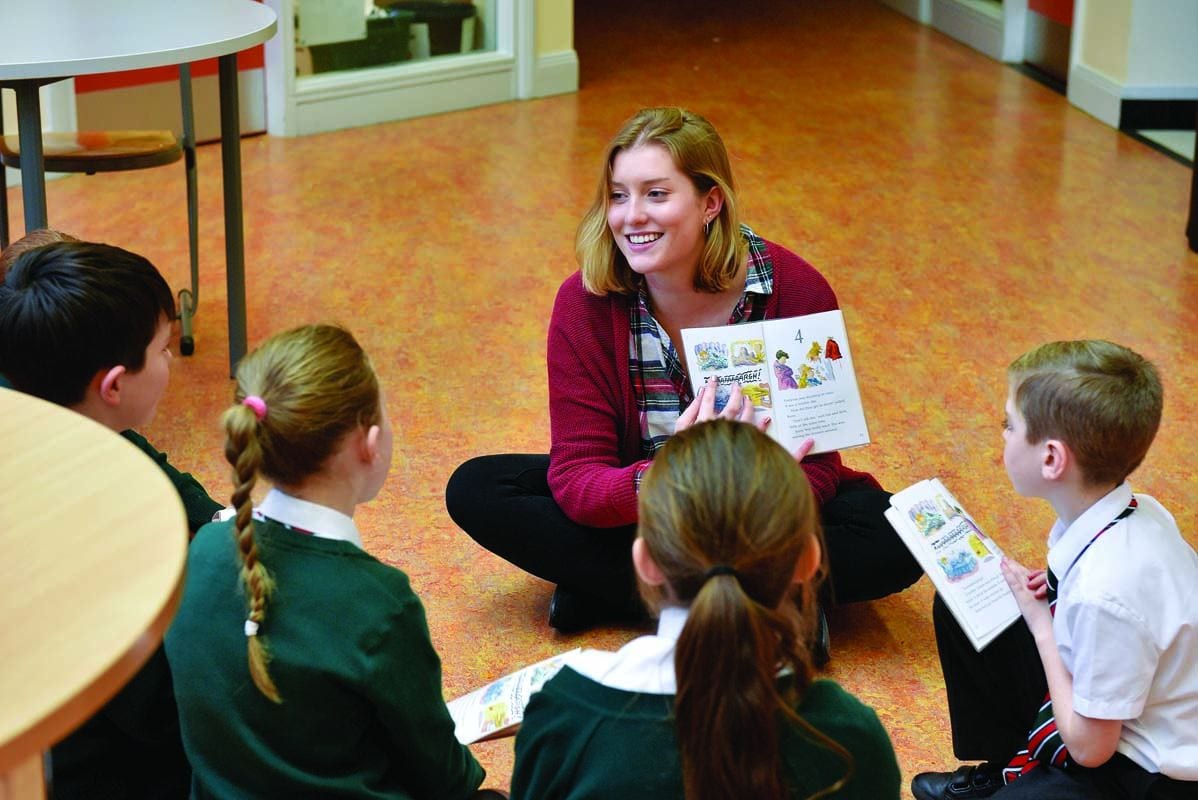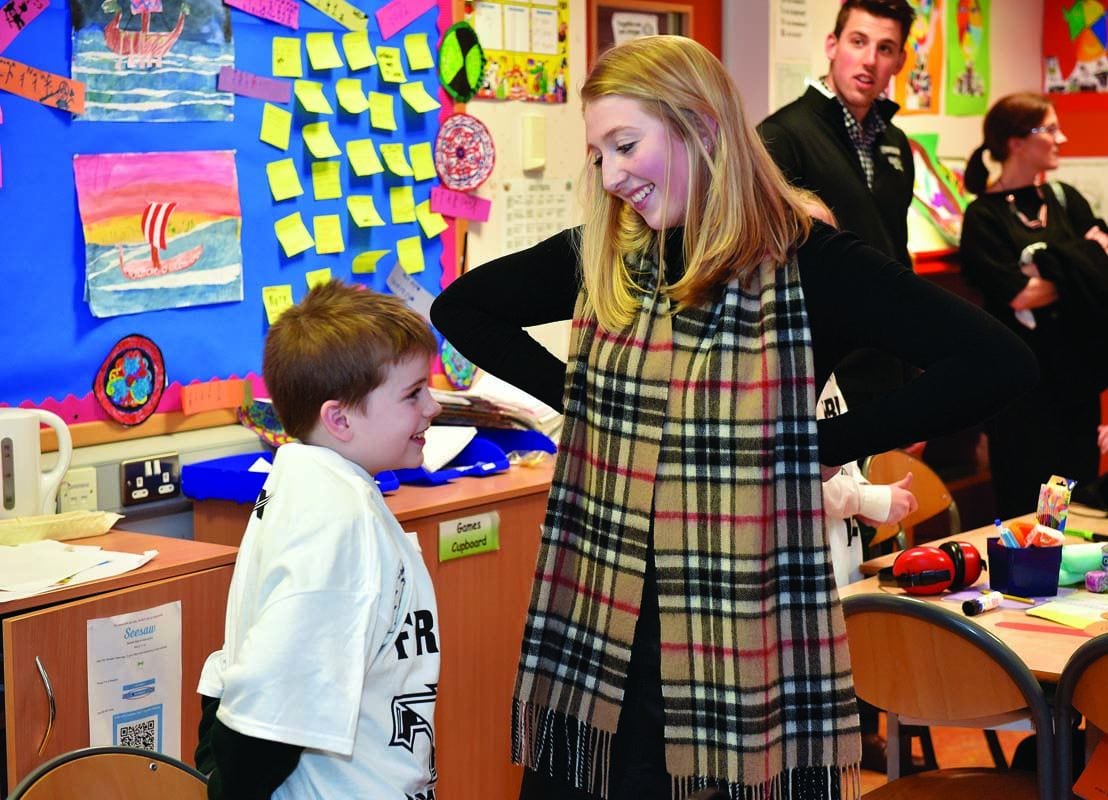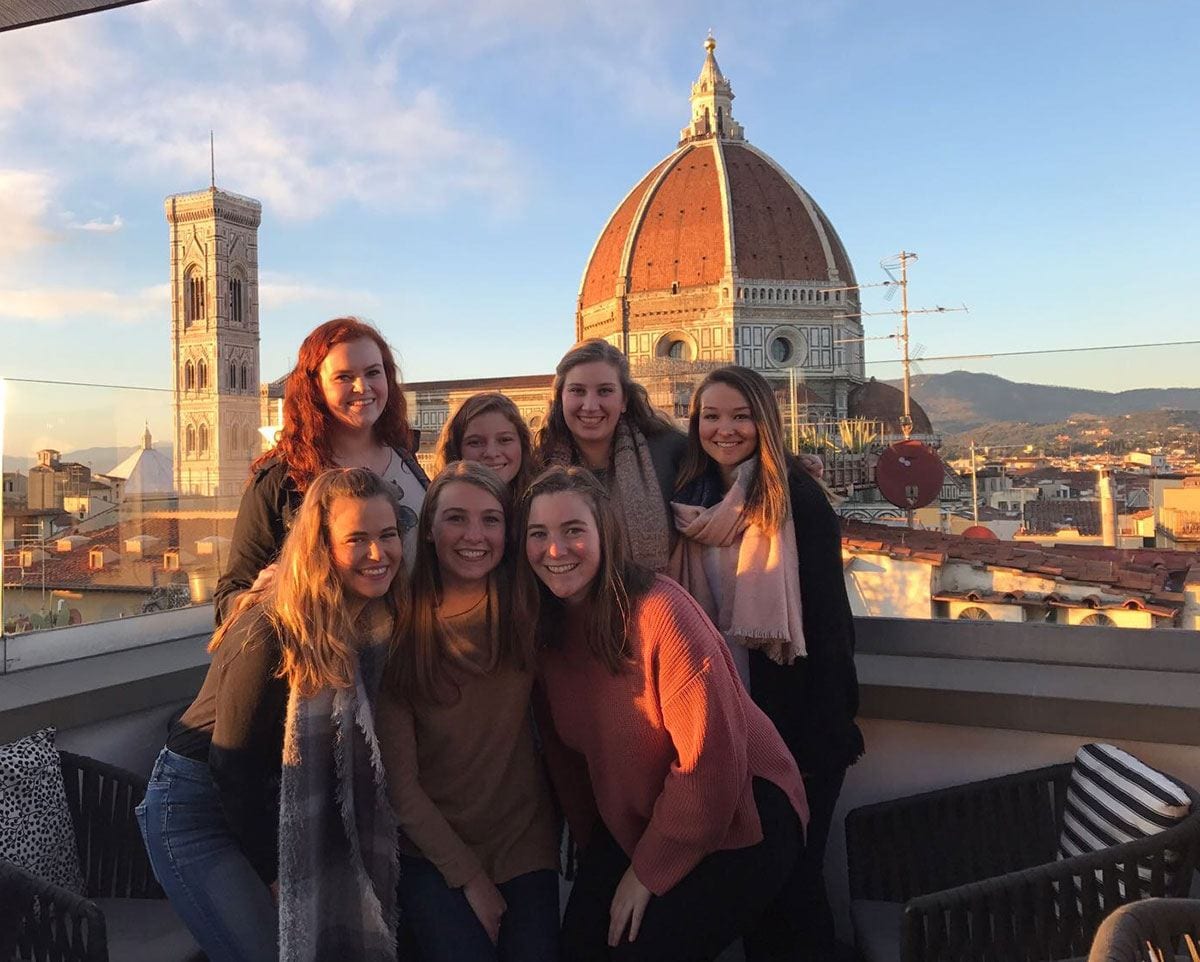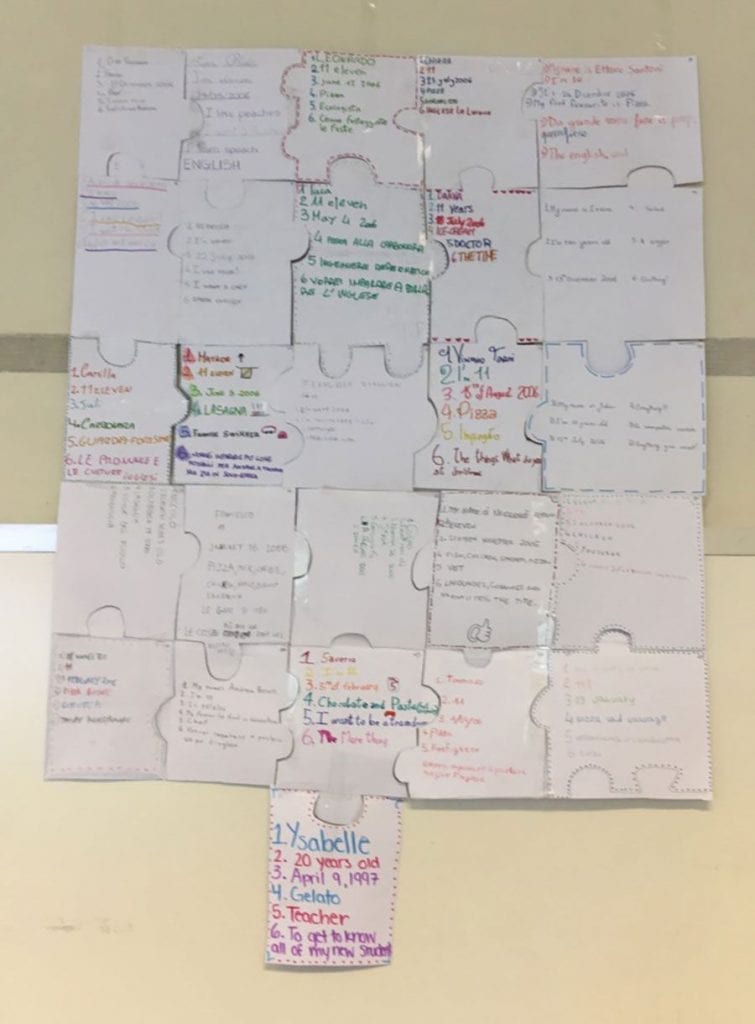April 30, 2018
Student teachers embrace special international experience

By Charles C. Joyce
Providence College’s Department of Elementary/Special Education is offering its students a trifecta experience that few other higher-education institutions in the United States can match: academic credit, intensive experience in a career field, and the opportunity to live and immerse oneself in the culture of a foreign land.
The department is marking the sixth year of its international study and teaching practicum program that is as distinct in structure as it is transformative for the education majors who participate. The fall semester program began in Florence, Italy, in 2012 and expanded to Belfast, Northern Ireland, in 2013.
Approximately 110 students have participated to date, with the Florence program capped at 24 students last fall. And, consideration is being given to broaden program locations in other countries.
In short, the program allows PC teacher candidates — who may not get the chance to study abroad because of tutoring and teaching requirements in area school districts — to earn 15 academic credits and to teach fourth- through sixth-graders alongside professionals in schools overseas, fulfilling a semester field experience requirement. The students’ study and teaching experiences generally are overseen by a faculty member from the department or a representative of U.S. higher-education study abroad programs that have international affiliations.

It’s an opportunity few U.S. undergraduate education majors have. While national figures on international student teaching participation are scarce, the 2017 Open Doors Report compiled by International Educational Exchange noted that just 3.4% of all study abroad students were education majors during academic year 2015-16. Few of those students get to participate in a teaching practicum as part of their studies.
“This is a transformative experience for our students,” said Dr. Lynne B. Ryan, professor of education, who served as faculty director of the Florence program in its first year.
“I think it has value in terms of flexibility, independence, and the ability to respond to different circumstances,” stated Dr. Laura Boynton Hauerwas, associate professor of education and the supervisor of the international study and teaching program. “One student told me, ‘This is the first time I haven’t spoken to my mother every morning.’ This is an independent piece they don’t get over here.”

Hauerwas and Ryan, with the assistance of Adrian G. Beaulieu, dean of the Center for International Studies, established the program partly in response to new regulations made by the Rhode Island Department of Education several years ago. The state began to require student teachers to have two full semesters of full-time teaching experience in order to graduate. Hauerwas, Ryan, and Beaulieu still wanted education majors to have the opportunity to study abroad during their junior year.
Hauerwas and Ryan say the international study and teaching experience has tremendous value for students. In addition to instilling independence and the need to be flexible and responsive, Hauerwas said teaching in a foreign country gives students confidence in themselves and in their ability to adapt to different classroom environments.
“Practicums aren’t all the same,” said Hauerwas, who was a faculty director in Florence in 2013. “When we go into the U.S. classroom, we have our expected role of the teacher and the process. This (international) is more unpredictable. It helps develop empathy for the pupils they are teaching. There can be language differences, and the students can feel uncomfortable. In the U.S., you have the power of knowing you are the teacher.”
Ryan said the language difference is one of several real-life challenges for student teachers in Florence. Not knowing Italian actually helps the students process differences in the educational system more thoroughly. Another difference in the “cultural lens” in Italy is more “formality,” she said. Pupils write in notebooks carefully and are proud of their precision. Dress and appearance are important to teachers and pupils in the schools, too.
“They are very organized, and presentation means a lot,” said Ryan, who taught in Great Britain in 1971-72 and returned there in 1990 for a sabbatical.
Hauerwas agreed that the exposure to an international education environment heightens student-teachers’ awareness of differences from the “norms” they are used to and sharpens their critical-thinking skills. Additionally, students who teach in Italian schools are forced to think more deeply about the importance of concise communication, she said.
The PC students who taught abroad in fall 2017 indicated their experiences were noticeably different from one another, but all said they felt welcome in their classrooms and appreciated the pupils’ enthusiasm. Some children had never met an American before, and many were obsessed with their visiting teachers and American culture in general.
Gabrielle Randall ’19 (Center City, Minn.) was struck by differences in classroom structure, mood, and diversity when teaching at the Belfast primary school where all five PC student teachers were assigned. Classroom management is less strict than in American schools, and it is common to see children chatting with one another or visitors while the teacher is instructing, she said. The relaxed atmosphere and social interaction were obvious and appeared to stimulate the Irish pupils’ class participation, said Randall.
“I had a great experience teaching in my Northern Ireland classroom and found that the overall environment was more pleasant than in the classrooms I’ve been in,” said Randall.
The experience of working in another classroom at the school was quite different for Mairead Roche ’19 (Hingham, Mass.). She found a “rigid” curriculum largely based on workbooks and that memorization of facts was emphasized. The pupils also seemed preoccupied with getting correct answers. “There was little room for creativity in most topics,” said Roche.
To address this, she tried to guide children away from textbooks and worksheets and engage directly with them. “Having my students work with each other and build off each other’s ideas in hands-on activities was where I was able to see them truly flourish and connect with the curriculum,” said Roche. She added that “learning should be fun” and that students learn from making mistakes.

She also said she used classroom management skills she learned in her College courses – “silly little call and response sayings like ‘Flat Tire’ and ‘Shhhh’” – to get pupils’ attention and smoothen transitions to new topics.
Ysabelle Errico ’19 (Beverly, Mass.) taught and observed sixth-grade classes in a Florence middle school with two other PC students. Two of the biggest impressions she came away with were the close relationship between each classroom’s teacher and students and the challenge of being effective with students who speak another language.
In the first instance, she said teachers are like parent figures to students, in part because the teacher remains with the same group of students through elementary school. Secondly, to help overcome the language challenge, Errico said the three student-teachers united and relied on skills they had been taught at PC or experienced teaching in local schools.
“The opportunity allowed my peers and me to engage in different forms of activities than we would in America,” she said. “We were forced to broaden our ‘teacher toolbox’ and challenge ourselves to find strategies that would best support our students’ learning processes.”
Errico called her study and teaching experience in Florence “the best decision I have made in my life,” in part because of the relationships she made, the travel experiences she had, and, two courses she took. One, an art course, included visits to historic churches and museums in the region. The other was an Italian society and cooking course.
Similar to Errico, studying and teaching abroad was “an amazing experience” for Samantha Guildford ’19 (West Palm Beach, Fla.), who went further and said her stay in Belfast reaffirmed her career aspiration. The children’s ”beaming” faces inspired her, she said. There are significant differences between education in Northern Ireland and America, including the fact most students in Northern Ireland go to a Catholic or Protestant school, not an integrated one, but lessons and teaching styles are similar to U.S. schools, she said.
“The students seemed to really enjoy my presence every day, and it made me realize that this is what I was meant to do,” said Guildford. “Studying in Northern Ireland was an amazing experience, and I will take everything I have learned and incorporate that into my classroom in America.”





